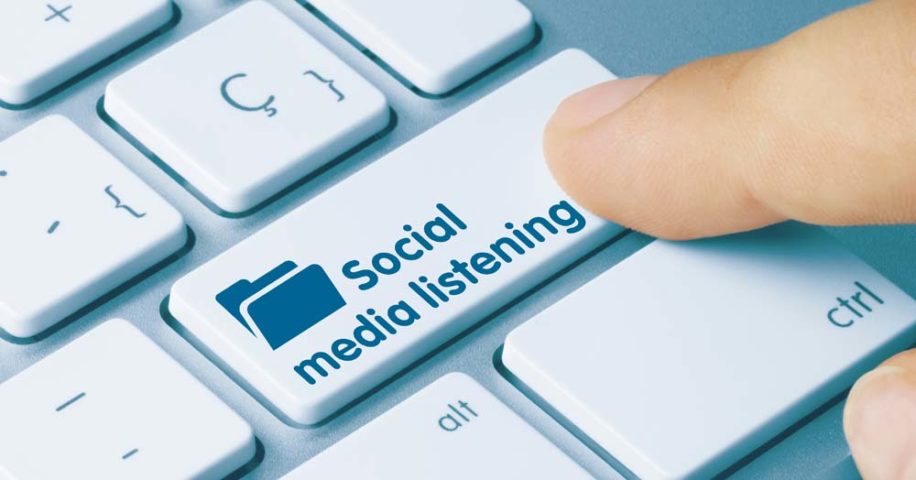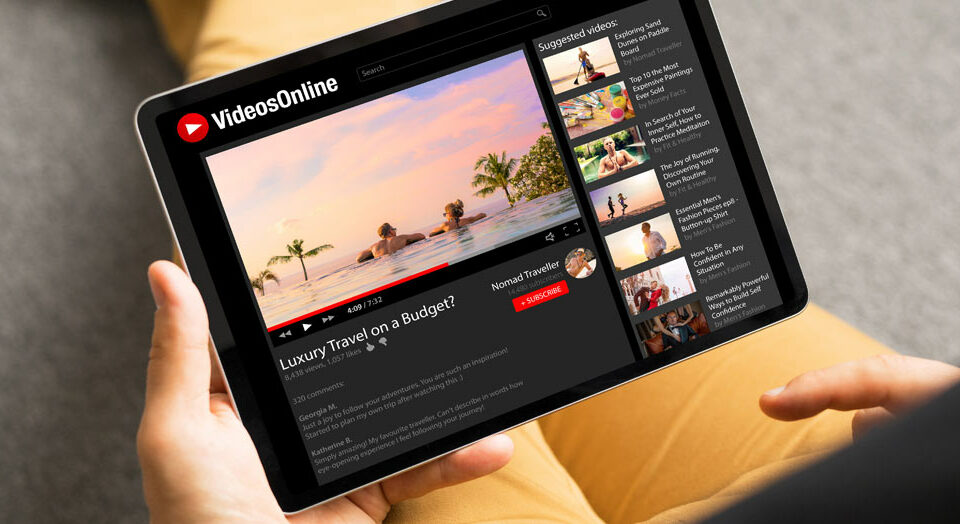
Instagram Marketing: Why You Should Be Using Location Tags
April 6, 2022
9 Ways to Reduce the Time You Spend Generating Leads
May 11, 2022What is Social Listening and Why is It Important?

At a time when more and more people are using social media, every brand needs to target platforms such as Facebook, Twitter, Instagram, and LinkedIn. However, social media marketing requires more than posting and advertising. Social listening is an essential practice that helps you understand your audience and keep track of important trends.
What is Social Listening?
In simple terms, social listening is keeping track of social media platforms to identify conversations related to your business, products, competitors, or industry. While most advice on social media talks about posting content, engaging with followers, or advertising, social listening is a quieter but equally important activity that helps you gather vital and actionable information.
Why Social Listening is Important
Social media is a valuable source of information about your audience and industry. When people have an opinion about your business or product, they don’t always tell you directly. They may mention it in a tweet, Facebook post, or review. Customers are often the most honest and forthcoming when making casual posts on social media. There are many benefits to paying attention to such conversations.
- Learn about mistakes and what you could be doing better. People love to post complaints on social media sites. While it’s no fun to hear criticism, it provides you with helpful insights on what you need to improve.
- Keep track of the competition. When people talk, either favorably or unfavorably, about your competitors, it gives you clues on what to do better. For example, if customers love a certain item your competitor is selling, you may want to introduce something similar.
- Be appraised of wider trends. Conversations about your niche or industry keep you informed about important news and trends. Whether your business is related to food, tech, fashion, pets, fitness, real estate, or anything else, you can keep track of emerging and declining trends.
How to Effectively Use Social Listening
You can engage in social listening using commonly available free tools or by investing in paid services. The following are some common ways to listen in on relevant social media conversations.
1. Set Up Alerts
You can use Google Alerts or another tool or service to track keywords relevant to your brand. This may include the names of your business, products, competing brands, and any terms that may be important for your current research or campaigns.
2. Listen Far and Wide
Social listening can be valuable beyond the usual platforms on which you are active. In addition to the most popular platforms such as Facebook, Instagram, and Twitter, you can expand your reach:
- Social media groups.
- Discussion forums related to your industry.
- Reddit — Check out subreddits that your audience is likely to follow.
- Quora and other question and answer sites.
- Review Sites — Yelp, Angie’s List, and niche review sites such as Avvo, ZocDoc, TripAdvisor, etc.
- YouTube –Browse the comments of popular videos.
3. Follow Your Competition
In addition to setting alerts for your competitors, you should follow them everywhere, such as their social media accounts, video channels, blogs, and podcasts.
4. Engage With Your Audience
While social listening is largely passive in the sense that you’re gathering information, you can get more out of it by actively participating in discussions. This goes beyond responding to posts and reviews about your brand, though this is important. Answer questions posted on social sites, Quora, and elsewhere. When appropriate, you can suggest your business as a solution. However, it’s helpful to provide more general answers as well. People can always find out who you are by looking at your profile.
5. Connect With Influencers
Social listening lets you identify influencers and potential brand ambassadors for your business. This includes not only people who are talking about your brand and products but who mention competitors and anything related to your industry. When you identify influencers, start by following them, sharing their content, and mentioning them in your own content. You can then reach out to form partnerships.
6. Manage Your Reputation
One of the reasons it’s so important to monitor social media is so you can respond to criticism and prevent small issues from escalating into major crises. If you encounter a bad review or a post that is critical of your business, respond calmly and address the issues. Don’t get caught up in angry exchanges with customers as this will only damage your reputation. If it’s a customer with a legitimate grievance, it’s usually best to contact them privately so you can resolve it.
Make Social Listening a Habit
To get the most out of social media, you need to know what people are saying about your brand and industry. Making social listening a regular practice will help you create more engaging content, develop stronger relationships with customers, and identify areas of your business that need improving.






